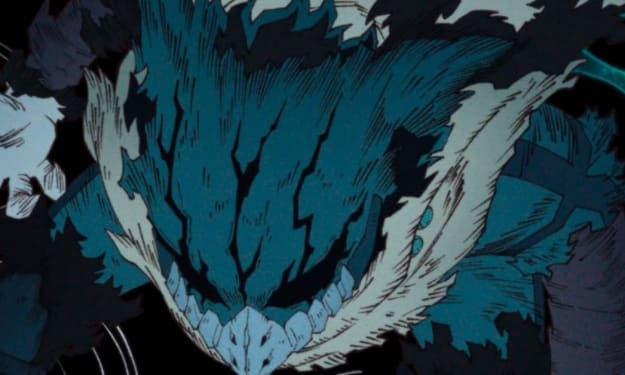The Enigma of Miracleman
Another Superman stand-in, or a genuine mystery?

The name Alan Moore holds a lot of weight in the comic book community. Even those with only a passing interest in the subject have come across some of his work, most likely the highly rated and critically acclaimed Watchmen and V for Vendetta. Some may have even immersed themselves in the likes of From Hell and The League of Extraordinary Gentlemen, the fact of the matter being that Alan Moore is celebrated for a reason. During a conversation several weeks ago, I had a number of comic recommendations given to me. This one conversation included titles such as Grant Morrison’s Zenith, Jess Nevins’ League companion Heroes & Monsters, and an Alan Moore title I had never come across before. Miracleman.
As any research junkie would do, I asked around in my local store and hit the internet in an attempt to discover just why I had never heard of it before. Upon finally getting my hands on the first two books, I noticed a quote from Time magazine printed on the cover to Miracleman Book One: A Dream of Flying. “A must-read for scholars of the genre, and of the comic book medium as a whole.” [McMillan. 2013]. The only conclusion I could discern from both the original recommendation and the internet wide praise: This book is a big deal.
Having finally sunk my teeth into the first book, I can concur that the praise is in no way misleading. Miracleman is an intense exploration of the superhero genre in itself, pre-dating what many consider Moore’s ultimate deconstruction of the superhero, Watchmen. Dream of Flying takes the original camp notion that superheroes had been known for since the 60s and ultimately treats it for what it is, even acknowledging the absurdity of magical origins in its own pages while simultaneously taking discussing the corruption that can come from possessing god-like abilities, personal sense of place and life, and even the validity of your own memories. Taking what was essentially a mythology and origin based on magic, redefining it through science fiction, and finally ripping it inside out. While a full review is at some point necessary, granted when all three books have been thoroughly poured over and absorbed, I came out of Dream of Flying with a lot of questions. Most of which concern the mysterious lack of reprints and the history of the character itself.
When discussing Miracleman, the conversation usually starts with the aforementioned 1982 Alan Moore run in the pages of British independent anthology, Warrior. However, the character dates back even further, to 1954 and the British publication L. Miller & Sons, Ltd. A company intended primarily to reprint American comic strips for the British market, primarily reprinting comics from Fawcett Publications. Fawcett Publications is now mostly remembered for the creation of Captain Marvel, now more famously known as the DC character, Shazam. While Fawcett comics would eventually come under fire from National (DC Comics) and eventually have to discontinue all lines of Captain Marvel comics, L. Miller & Sons would need to replace these in Britain with their own creations.
Miracleman, originally named Marvelman, was created by artist and writer Mick Anglo, as a knock off of Fawcett’s Captain Marvel, with similarities to the two including the utterance of a magic word as well as an extended Marvel family. With Captain Marvel being considered a rip-off himself, this just adds more fuel to the notion that all modern Heroes can trace their origins back to Superman. Introduced to the public just as Captain Marvel books disappeared, it managed to survive until 1963 with the bankruptcy of L. Miller & Sons. Marvel man did not appear again until 1982 in the now highly-regarded Moore run.
During the Moore run, the character, however, was still referred to as Marvelman rather than his current title. It was only due to Marvel Comics' need to snap up and copyright uses of the word Marvel (for obvious reasons I’m sure you’ll see) that Eclipse Comics, the then publisher, pushed to have the name changed to Miracleman and avoid any more controversy over such matters.
Copyright and ownership is a problem that has long plagued the character ever since those early days, including the Marvels and Miracles, LLC vs. Todd McFarlane Productions case of 2002. But by 2013, all rights were finally settled and held squarely with Marvel Comics (the same company who, ironically enough, had caused Miracleman’s original name change).
This only leaves one looming question. Why is Moore credited as "The Original Writer"? Surely having a name like Alan Moore on a book that few new readers would know in was a no-brainer. This decision, at the end of the day, came from Moore himself. In an interview with The Hollywood Reporter, Moore stated that at the time of his original work on Miracleman, he was unaware that Mike Anglo had no rights to the character and was making nothing from it. “If I’d known that, I would have never taken the job.” [McMillan. 2013]. Due to the belief that he had been part of cheating the original creator out of what was rightfully his, Moore decided to leave his name off the reprints. “By the time that Marvel Comics were involved I just thought, No, let it go, give all the money to Mick Anglo” [McMillan. 2013].
Miracleman, in both story and history, is incredibly rich. With so much to take away from it and with two books still ahead of me, I am so glad I took up the recommendation and I hope that anyone who has read this thinks about checking it out.
About the Creator
Mikayla J. Laird
Passionate life long film and comic fan. Firm believer in using entertainment to educate. Part-time lecturer.
https://www.facebook.com/MikaylaJLaird/






Comments
There are no comments for this story
Be the first to respond and start the conversation.